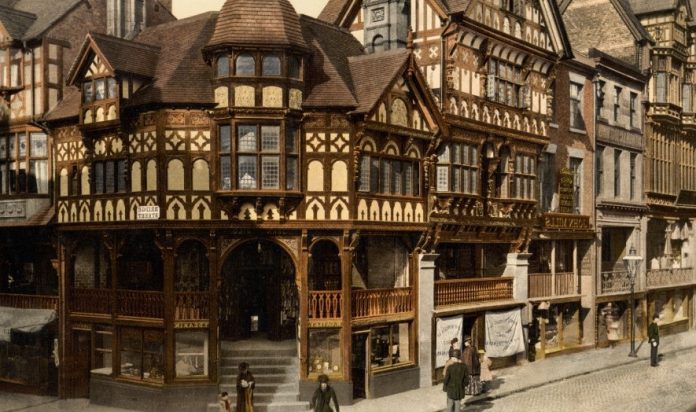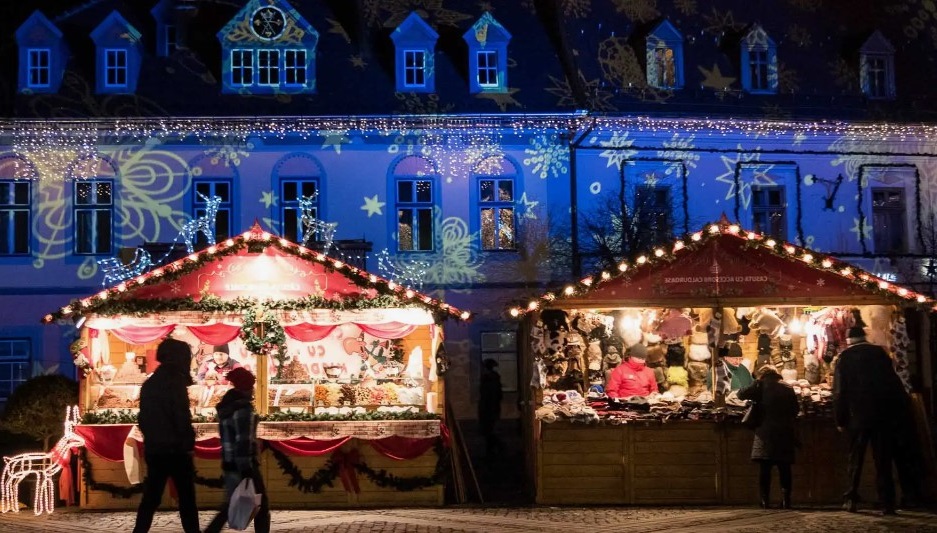
A traditional European deli embodies the essence of old-world culinary delights, offering an array of artisanal meats, cheeses, breads, and delicacies that reflect the rich culinary heritage of Europe. From savory sausages and smoked meats to creamy cheeses and freshly baked breads, a visit to a traditional European deli promises a sensory journey steeped in authentic flavors and time-honored recipes. Whether seeking a taste of Italy’s prosciutto, France’s brie, or Germany’s bratwurst, patrons can indulge in a selection that celebrates the diverse gastronomic traditions of the continent.
Table of Contents
Definition of a Traditional European Deli
A traditional European deli typically
A traditional European deli typically refers to a small shop or establishment that specializes in offering a variety of European cured meats, cheeses, pickled vegetables, bread, pastries, and other delicacies. These delis often emphasize high-quality, artisanal products sourced from different regions of Europe.
B. Importance and Significance of Traditional European Delis
Traditional European delis play a significant role in preserving culinary traditions and cultural heritage. They serve as hubs where communities gather to experience authentic European flavors and connect with their culinary roots. These delis also contribute to local economies by supporting small-scale producers and artisans.
Historical Background
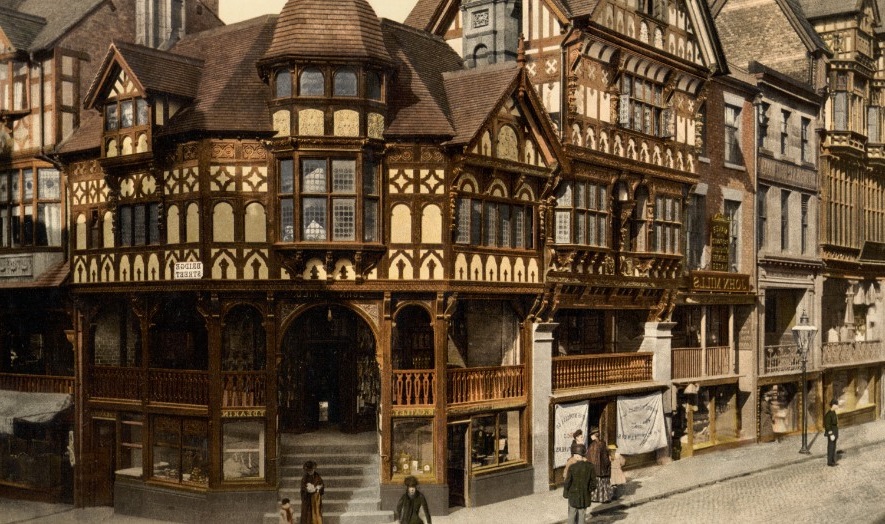
A. Origins of European Delicatessens
European delicatessens trace their origins back to the late 18th and early 19th centuries when urbanization and industrialization spurred the development of specialty food shops in European cities. These early delicatessens catered to the growing demand for imported and locally produced delicacies, serving as purveyors of luxury goods to affluent clientele.
B. Evolution of Deli Culture in Europe
Over time, European deli culture evolved to reflect changing culinary tastes and societal trends. Delis expanded their offerings to include a diverse array of products from different European regions, reflecting the continent’s rich culinary heritage. The rise of immigration and globalization further influenced deli culture, introducing new ingredients and flavors to traditional European fare.
C. Influence on European Culinary Traditions
Classic European market have had a profound impact on European culinary traditions, shaping the way people perceive and consume food. They have helped popularize regional specialties and artisanal products, fostering appreciation for traditional cooking methods and ingredients. Delis also serve as culinary ambassadors, introducing European cuisine to international audiences and promoting cross-cultural exchange.
Overall, traditional European delis continue to thrive as beloved institutions that celebrate the diversity and richness of European gastronomy, serving as cultural landmarks cherished by locals and visitors alike.
Characteristics of a Traditional European Deli
A. Variety of Meats and Cheeses
Old-fashioned European delicatessen boast a wide selection of meats and cheeses, showcasing the diverse flavors and textures found across the continent. From savory cured meats like prosciutto, salami, and chorizo to creamy artisanal cheeses such as brie, gouda, and manchego, these delis offer something to satisfy every palate.
B. Freshly Baked Breads and Pastries
One of the hallmarks of a traditional European deli is its selection of freshly baked breads and pastries. Customers can indulge in crusty baguettes, hearty rye loaves, and flaky croissants, each crafted with care using time-honored baking techniques.
C. Imported European Specialty Foods
Traditional European delis source a range of imported specialty foods, allowing customers to experience authentic flavors from various regions of Europe. From Italian pasta and Spanish olive oil to French mustard and German sauerkraut, these delis offer an enticing array of culinary treasures.
D. Handcrafted Deli Items and Condiments
In addition to meats, cheeses, and imported goods, Authentic European grocery often feature handcrafted deli items and condiments. From house-made pickles and relishes to tangy mustard and savory spreads, these artisanal offerings add depth and flavor to any meal.
Products Offered
A. Cured Meats (e.g., Prosciutto, Salami, Chorizo)
Vintage European charcuterie pride themselves on their selection of expertly cured meats, including the iconic prosciutto from Italy, flavorful salami varieties from across Europe, and spicy chorizo hailing from Spain and Portugal.
B. Artisanal Cheeses (e.g., Brie, Gouda, Manchego)
Customers can delight in the rich and diverse world of artisanal cheeses available at traditional European delis. From creamy brie and nutty gouda to firm and flavorful manchego, these cheeses represent the best of European dairy craftsmanship.
C. Pickles, Olives, and Antipasti
Time-honored European pantry offer a tantalizing assortment of pickles, olives, and antipasti, perfect for creating vibrant and flavorful appetizer platters. Customers can choose from a variety of briny pickles, marinated olives, and artfully arranged antipasti items to complement their charcuterie selections.
D. Freshly Prepared Sandwiches and Paninis
For customers seeking a quick and satisfying meal, traditional European delis often prepare freshly made sandwiches and paninis using their premium meats, cheeses, and breads. Whether it’s a classic Italian panini or a hearty deli sandwich piled high with gourmet ingredients, these offerings are sure to satisfy hungry appetites.
E. European Pastries and Desserts
No visit to a traditional European deli would be complete without indulging in some decadent pastries and desserts. From flaky croissants and buttery Danish pastries to rich tortes and delicate macarons, these sweet treats showcase the diverse and delicious dessert traditions of Europe.
Cultural Significance
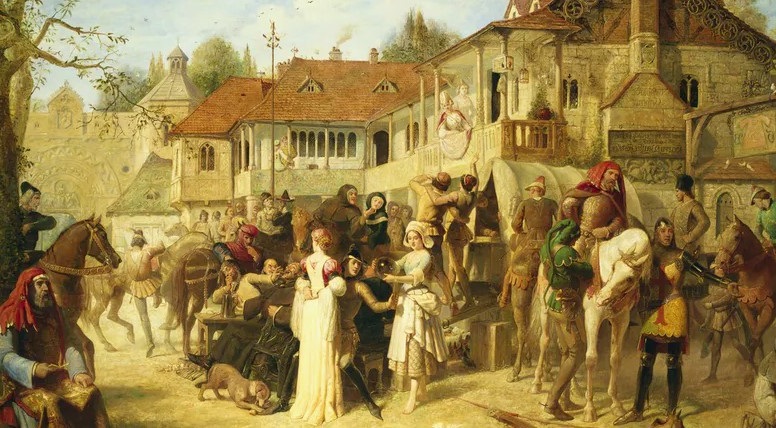
A. Role in European Culinary Heritage
Rustic European provisions store play a vital role in preserving and promoting the rich culinary heritage of Europe. By offering a curated selection of authentic ingredients and delicacies, they serve as custodians of Classic European charcuterie and culinary techniques passed down through generations.
B. Gathering Place for Communities
European delis often serve as focal points within communities, providing a welcoming environment where people gather to socialize, share stories, and celebrate their shared cultural heritage. These establishments foster a sense of belonging and connection among patrons, creating lasting memories and traditions.
C. Preservation of Traditional Recipes and Techniques
Through their dedication to sourcing artisanal products and preserving traditional recipes and techniques, traditional European delis help ensure that authentic flavors and culinary traditions endure for future generations. By supporting local producers and artisans, they contribute to the sustainability of traditional foodways.
Customer Experience
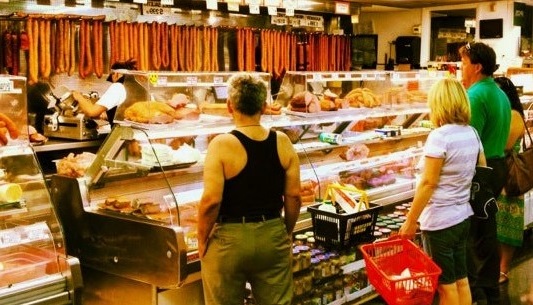
A. Warm and Inviting Atmosphere
Heritage European food shop strive to create a warm and inviting atmosphere, reminiscent of the cozy neighborhood markets and cafes found throughout Europe. With welcoming decor, ambient lighting, and inviting aromas, they invite customers to linger and savor the experience.
B. Knowledgeable and Friendly Staff
The staff at Historic European gourmet store are often passionate about their craft and eager to share their knowledge with customers. They provide friendly and attentive service, offering insights into the origins and characteristics of different products and helping customers make informed choices.
C. Sampling and Tasting Opportunities
Many traditional European delis offer sampling and tasting opportunities, allowing customers to explore new flavors and discover their favorites. From cheese and charcuterie platters to freshly baked treats, these tasting experiences enhance the customer’s journey and encourage culinary exploration.
D. Personalized Recommendations and Service
Traditional European food emporium take pride in offering personalized recommendations and attentive service tailored to each customer’s preferences. Whether it’s suggesting the perfect cheese pairing or recommending a specialty condiment, the staff strive to create memorable and enjoyable shopping experiences.
Challenges and Opportunities
A. Competition from Large Retail Chains
Vintage European butcher shop face competition from large retail chains and supermarkets that offer mass-produced and standardized products. To remain competitive, delis must emphasize their unique offerings, personalized service, and commitment to quality.
B. Changing Consumer Preferences and Dietary Trends
As consumer preferences and dietary trends evolve, Artisan European food market must adapt to meet the demands for healthier, sustainable, and ethically sourced products. Embracing innovation while staying true to their heritage allows delis to attract a diverse customer base.
C. Opportunities for Expansion and Diversification
While Authentic European market hold a special place in culinary culture, there are opportunities for expansion and diversification. Delis can explore new product lines, expand their online presence, and collaborate with local producers to offer a wider range of offerings.
D. Maintaining Authenticity and Quality Standards
As traditional European delis grow and evolve, it’s essential to maintain authenticity and uphold rigorous quality standards. By prioritizing the sourcing of premium ingredients, supporting artisanal producers, and preserving traditional recipes and techniques, delis can continue to deliver exceptional culinary experiences to their customers.
Below is a breakdown table, conclusion, and 10 FAQs along with their answers based on the article provided:
Breakdown Table
| Section | Summary |
| I. Introduction | Defines traditional European delis and their significance. |
| II. Historical Background | Traces the origins and evolution of European deli culture. |
| III. Characteristics | Highlights key features of traditional European delis. |
| IV. Products Offered | Lists common products found in traditional European delis. |
| V. Cultural Significance | Explores the cultural importance of traditional delis. |
| VI. Customer Experience | Describes the typical customer experience at these delis. |
| VII. Challenges & Opportunities | Discusses the challenges and growth prospects for traditional delis. |
Conclusion
Traditional European delis represent more than just places to purchase food; they serve as cultural landmarks preserving culinary heritage. Offering a variety of meats, cheeses, baked goods, and imported specialties, they create a warm, inviting atmosphere where communities gather to share stories and savor traditional flavors. Despite facing challenges from large retail chains and shifting consumer preferences, Old-world European gastronomy have opportunities for expansion and innovation while staying true to their authenticity and quality standards.
Frequently Asked Questions (FAQs)
- What is a traditional European deli?
- A traditional European deli is a specialty shop that offers a variety of European cured meats, cheeses, breads, pastries, and imported specialty foods.
- What products are commonly found in Authentic European culinary haven?
- Authentic European culinary haven typically offer a variety of cured meats, artisanal cheeses, freshly baked breads, imported specialty foods, pickles, olives, antipasti, sandwiches, and pastries.
- Why are Classic European epicurean shop significant?
- Classic European epicurean shop play a vital role in preserving culinary heritage, serving as gathering places for communities, and maintaining traditional recipes and techniques.
- What is the customer experience like at a traditional European deli?
- Customers can expect a warm and inviting atmosphere, knowledgeable and friendly staff, sampling and tasting opportunities, and personalized recommendations and service.
- What challenges do traditional European delis face?
- Traditional European delis face competition from large retail chains, changing consumer preferences, and the need to maintain authenticity and quality standards.
- How do Historic European delicacies store contribute to cultural heritage?
- Historic European delicacies store preserve traditional recipes and techniques, support local producers and artisans, and serve as hubs for culinary exploration and community engagement.
- What opportunities exist for Vintage European gourmet deli?
- Vintage European gourmet deli can explore opportunities for expansion, diversification, and innovation while staying true to their heritage and quality standards.
- What are some common meats and cheeses found in Rustic European specialty shop?
- Common meats include prosciutto, salami, and chorizo, while common cheeses include brie, gouda, and manchego.
- How do traditional European delis maintain authenticity?
- Traditional European delis maintain authenticity by sourcing premium ingredients, preserving traditional recipes and techniques, and supporting artisanal producers.
- What role do Time-honored European food purveyor play in communities?
- Time-honored European food purveyor serve as gathering places where communities come together to celebrate shared cultural heritage, socialize, and enjoy traditional flavors.

